Filter by
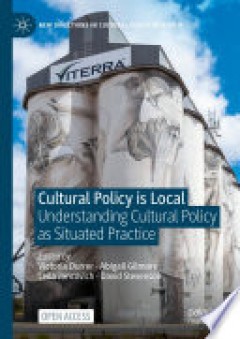
Cultural policy is local : understanding cultural policy as situated practice
- Edition
- 1
- ISBN/ISSN
- 9783031323126
- Collation
- XIX, 267p
- Series Title
- New Directions in Cultural Policy Research
- Call Number
- 306 CUL c
- Edition
- 1
- ISBN/ISSN
- 9783031323126
- Collation
- XIX, 267p
- Series Title
- New Directions in Cultural Policy Research
- Call Number
- 306 CUL c
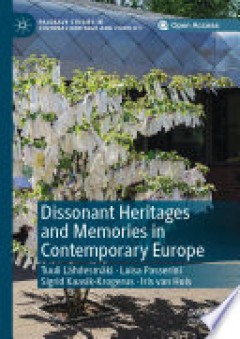
Dissonant heritages and memories in contemporary Europe
This open access book discusses political, economic, social, and humanitarian challenges that influence both how people deal with their past and how they build their identities in contemporary Europe. Ongoing debates on migration, on local, national, inter- and transnational levels, prove that it is a divisive issue with regards to understanding European integration and identity. At the same ti…
- Edition
- 1
- ISBN/ISSN
- 9783030114640
- Collation
- xv, 294p.; ill.
- Series Title
- Palgrave studies in cultural heritage and conflict
- Call Number
- 363.69 DIS v
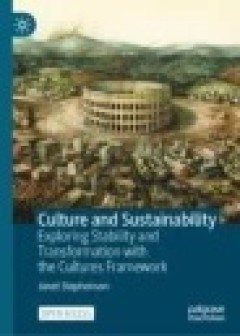
Culture and Sustainability : exploring stability and transformation with the …
This Open access book brings a cultural lens, and a distinctive analytical framework, to the problem of transitioning to a sustainable, low-carbon future. The world faces a seemingly impossible hurdle – to radically alter long-established social, economic and technological systems in order to live within the biophysical limits of the globe, while ensuring a just and enduring transition. …
- Edition
- -
- ISBN/ISSN
- 9783031255151
- Collation
- xvii, 243p. : ill.
- Series Title
- -
- Call Number
- 306.094 STE c
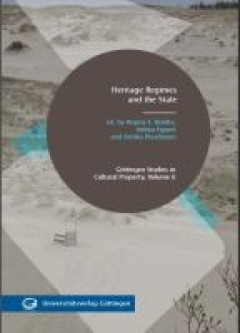
Heritage regimes and the state
What happens when UNESCO heritage conventions are ratified by a state? How do UNESCO’s global efforts interact with preexisting local, regional and state efforts to conserve or promote culture? What new institutions emerge to address the mandate? The contributors to this volume focus on the work of translation and interpretation that ensues once heritage conventions are ratified and implement…
- Edition
- Ed. 2
- ISBN/ISSN
- 9783863951221
- Collation
- 413p.
- Series Title
- -
- Call Number
- 363.69 HER b
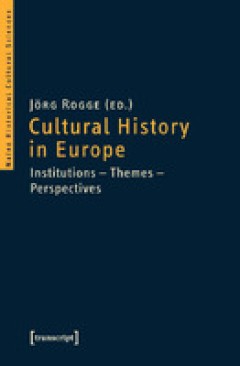
Cultural history in Europe : institutions - themes - perspectives
What is the current state of discussion in Cultural History? Which European institutions engage exclusively in Cultural History and which topics do they address? And how will Cultural History develop in the future? These and other questions are raised by European scholars in the discussion of Institutions, Themes and Perspectives of Cultural History in this volume. It provides a profound overvi…
- Edition
- -
- ISBN/ISSN
- 9783839417249
- Collation
- 259p.
- Series Title
- -
- Call Number
- 940.5 CUL r
Understanding well-being data : improving social and cultural policy, practic…
‘Following the data’ is a now-familiar phrase in Covid-19 policy communications. Well-being data are pivotal in decisions that affect our life chances, livelihoods and quality of life. They are increasingly valuable to companies with their eyes on profit, organisations looking to make a social impact, and governments focussed on societal problems. This book follows well-being data back cent…
- Edition
- -
- ISBN/ISSN
- 9783030729370
- Collation
- xxiii, 373 p. : color, ill.
- Series Title
- -
- Call Number
- 362.1 OMA u
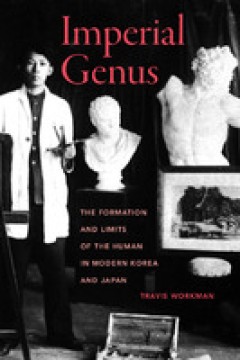
Imperial genus : the formation and limits of the human in modern Korea and Japan
"Imperial Genus begins with the turn to world culture and ideas of the generally human in Japan’s cultural policy in Korea in 1919. How were concepts of the human’s genus‑being operative in the discourses of the Japanese empire? How did they inform the imagination and representation of modernity in colonial Korea? Travis Workman delves into these questions through texts in philosophy, lit…
- Edition
- -
- ISBN/ISSN
- 9780520964198
- Collation
- vii, 307 p. : ill,
- Series Title
- -
- Call Number
- 951.903 WOR i
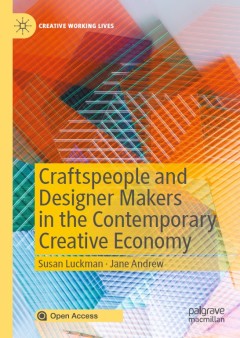
Craftspeople and designer makers in the contemporary creative economy
This open access book explores the experience of working as a craftsperson or designer maker in the contemporary creative economy. The authors utilise evidence from the only major empirical study to explore the skills required and the challenges facing contemporary makers in an increasingly crowded marketplace. Drawing upon 180 interviews with peak organisations, established and emerging makers…
- Edition
- -
- ISBN/ISSN
- 9783030449797
- Collation
- xv, 259p. : ill.
- Series Title
- -
- Call Number
- 338.6425 LUC c
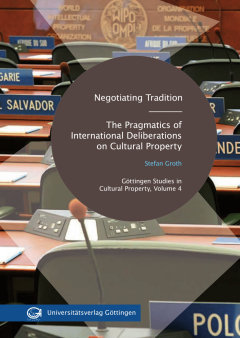
Negotiating tradition - the pragmatics of international deliberations on cult…
Communicative interactions in international negotiations on cultural property not only provide information about the emergence and proliferation of arguments, rhetorics, and registers, but also permit valuable insights into actors’ positions, strategies and alliances. They significantly influence local and national practices and views related to cultural property debates. What can be gained f…
- Edition
- -
- ISBN/ISSN
- 9783863951009
- Collation
- IX, 190 p.
- Series Title
- -
- Call Number
- 306 GRO n
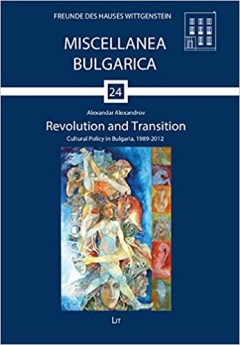
Revolution and transition : cultural policy in Bulgaria, 1989-2012
Bulgaria’s cultural policy has experienced many transformations since the revolution. One of the most important is that at the beginning the conviction developed that those elements which could not support themselves because of the new market situation made no relevant social contribution. One of the aims of this thesis is to question what the reality of “cultural economy” is and how this…
- Edition
- -
- ISBN/ISSN
- 9783643908148
- Collation
- III, 247 p
- Series Title
- -
- Call Number
- 306.09499 ALE r
 Computer Science, Information & General Works
Computer Science, Information & General Works  Philosophy & Psychology
Philosophy & Psychology  Religion
Religion  Social Sciences
Social Sciences  Language
Language  Pure Science
Pure Science  Applied Sciences
Applied Sciences  Art & Recreation
Art & Recreation  Literature
Literature  History & Geography
History & Geography